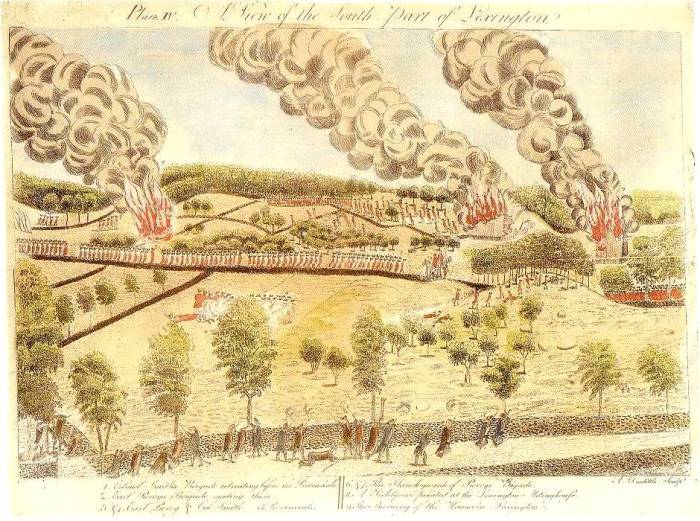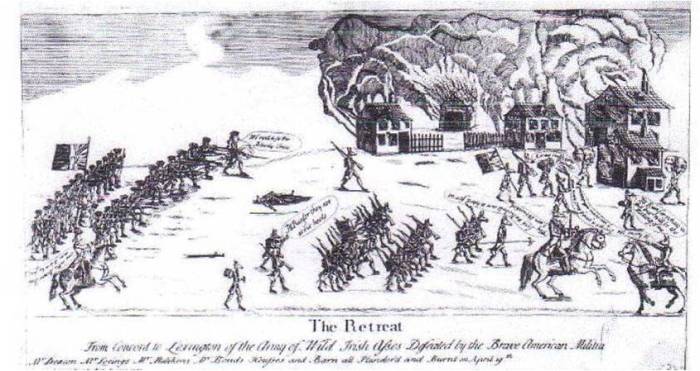 April 18, 1775 – About 2 o’clock a.m. the town of Lexington was roused by riders announcing that British Regulars had left Boston and were heading for Lexington and Concord. We usually concentrate our attention to the story of the militia mustering on Lexington Common, Concord’s Old North Bridge and “the shot heard ‘round the world.” But the battle affected everyone in the town of Lexington.
April 18, 1775 – About 2 o’clock a.m. the town of Lexington was roused by riders announcing that British Regulars had left Boston and were heading for Lexington and Concord. We usually concentrate our attention to the story of the militia mustering on Lexington Common, Concord’s Old North Bridge and “the shot heard ‘round the world.” But the battle affected everyone in the town of Lexington.
Alerted that British troops were marching to Lexington, many residents spent the next few hours hiding valuables and evacuating to either nearby woods or neighboring towns.
At dawn the British troops’ engagement with the Minutemen on Lexington Common resulted in the death of eight Americans and one British soldier. The British proceeded to Concord as Lexington residents returned to survey the damage. Aware that the British would have to return to Boston this same way, residents hastily nailed together rough coffins, prayed and buried the dead in a communal grave. They knew there were only a few hours until the British came back.
Around 2:00 p.m. the Regulars returned. Constantly harassed by militiamen, their march from Concord had become close to a rout. But in Lexington they found to their relief that reinforcements – 1,000 soldiers from Boston – had arrived. They also found much of the town deserted. Many residents with only their children and what they could carry had hidden or fled. Twenty-seven-year-old Rebecca Munro and her four children fled to the woods just in front of the returning British regulars. Lydia Mullikin, well-to-do widow of the town’s clockmaker, hid silver and valuables in her well before fleeing.
The British soldiers set up their headquarters and field hospital in the Munro Tavern, owned by militia man William Munro. For an hour and a half they ate, drank the cellar dry and broke furniture and windows.
 Enraged by the American snipers, the British soldiers took their anger out on Lexington. They burned three houses, including Lydia Mullikin’s. Other homes and buildings were plundered or destroyed. Livestock was killed. An elderly man was shot as he fled.
Enraged by the American snipers, the British soldiers took their anger out on Lexington. They burned three houses, including Lydia Mullikin’s. Other homes and buildings were plundered or destroyed. Livestock was killed. An elderly man was shot as he fled.
The British continued their march back to Boston. Lexington residents returned to their town and began to realize what it would mean to have a revolution fought on their doorstep.
Connections: Lydia Mullikin married my husband’s 2nd cousin 7x removed.
Rebecca Munro was my husband’s 3rd cousin 6x removed.
